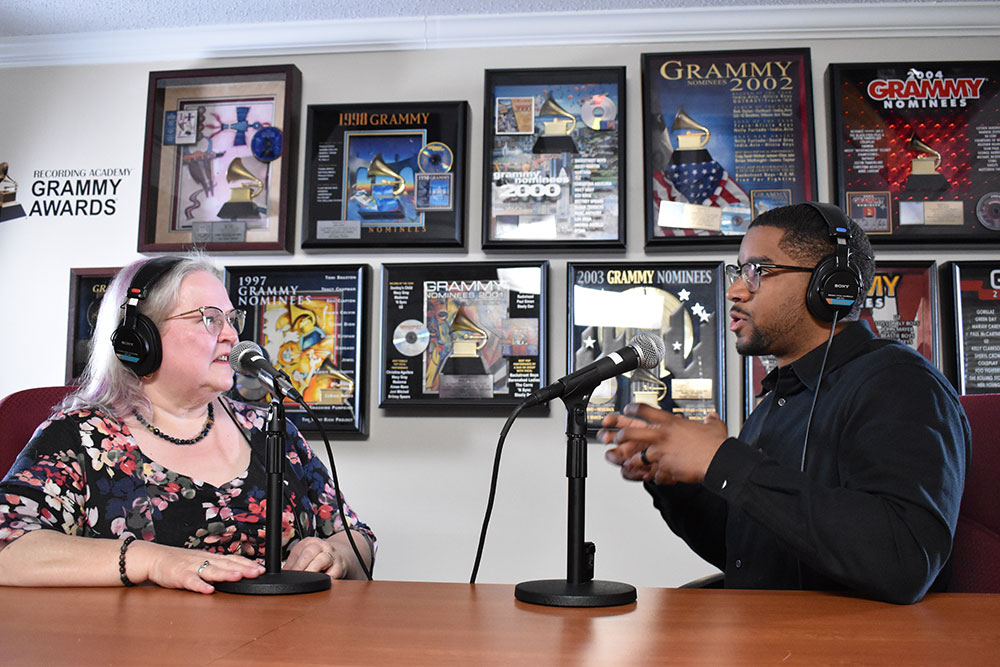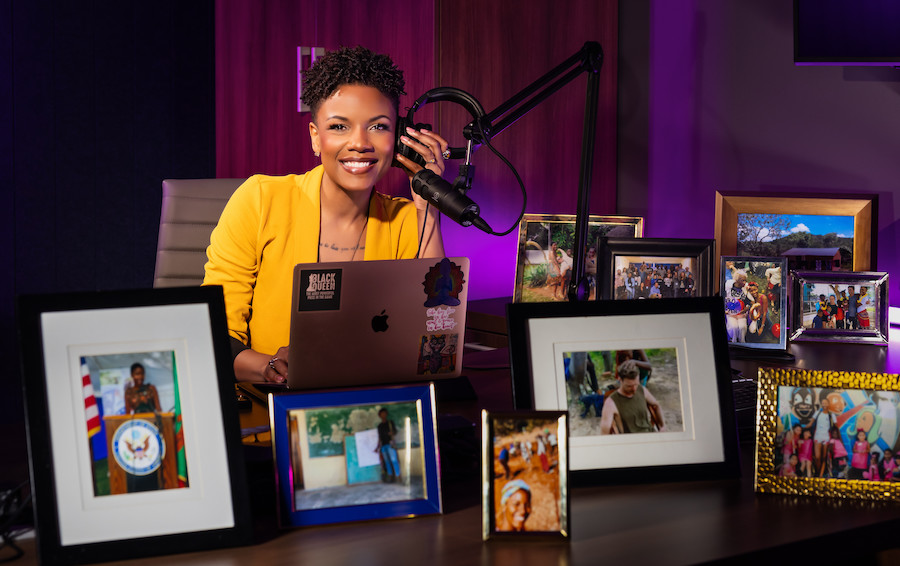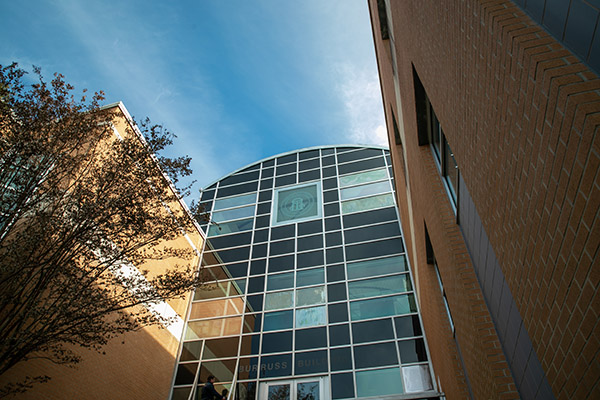
Hughes Leadership Program Reaches Major Milestone
KENNESAW, Ga. | Feb 22, 2018
Since 2014, the Hughes Leadership and Career Program has used innovative coursework and one-on-one attention to help Coles College of Business students develop the skills that employers desire in their new hires.
With cumulative enrollment in the Hughes program surpassing 10,000 students as of
spring 2018, administrators are eager to continue growing this unique approach to
career preparation.
10,000 Students: Celebrating a Milestone
The Hughes Program launched in fall 2014 with 263 enrolled students. Today, total enrollment for spring 2018 is 1,832. Adding up the enrollment numbers for all 10 semesters that the program has been active reveals a cumulative enrollment of 10,206.
“We view this number as a point of pride,” says Dr. Angela Evans, Executive Director of Undergraduate Programs. “It really lets our career coaches know that they have made a significant impact.”
Priscilla Hollman, Assistant Director of the Hughes Program, says the milestone reflects Coles College’s dedication to preparing students for the future.
“To go from zero to 10,000 in four years is pretty amazing,” she says. “It makes an impact on the credential that our students hold when they graduate and shows that the college is dedicated to making the program sustainable for the long term.”
“The Business School of the Future”
The Hughes Leadership and Career Program consists of three non-credit courses that all Coles College undergraduates are required to complete. Students learn career-readiness, strength awareness, professional accountability, and written and verbal communication skills.
While the Hughes program began enrolling students in fall 2014, plans for its creation go back to 2010, when Dr. Kathy Schwaig, Dean of Coles College, created the Blue Sky Task Force. Its goal was to explore ways to update the Coles College curriculum to create The Business School of the Future.
“Our mandate was to find new ways of helping our students be ready for successful business careers,” says Dr. Leila Borders, Director of Marketing, Promotion, and Student Development for the Center for Professional Selling, who served on the Blue Sky Task Force and works as a Hughes career coach. “The task force imagined what the ideal business school experience might look like if we started from scratch, unbound by history or structure.”
What Do Businesses Want?
The Blue Sky Task Force focused on creating a curriculum that matched the skills that employers want in recent graduates.
Based on surveys of students, alumni, and local business leaders, the task force learned that recruiters are looking for graduates with critical thinking skills – including the ability to distinguish between facts and opinions and make clear written arguments – and who understand business etiquette in regards to writing emails, dressing appropriately, and posting on social media. Employers also want new hires to have plans for their postgraduate career goals and be able to articulate how their strengths and leadership abilities will help them achieve their goals.
“Employers want you to already know what you want based on your strengths, interests, and talents,” Hollman says. “They want you to find your niche so that you and the company will be successful.”
The task force identified some concerns about Coles College graduates that they wanted to address with their curriculum update, including:
- Only 39 percent worked in their careers of choice
- Most graduates had unreal salary expectations
- Less than one-fifth of Coles College students participated in internships,
- Many chose majors based on influence from friends and family, rather than facts
Armed with information about what employers are looking for, the task force proposed an educational model that took advantage of modern technology and new teaching methods to ensure that what students learn is directly relevant to their success in the workforce.
After years of curriculum development, the Hughes Leadership and Career Program began enrolling students in fall 2014 under the leadership of Linda Malgeri, the program’s founding director, who led the program until 2017.

The Hughes Difference
The Hughes Program includes three courses, each designed to guide students along different parts of the path of career-readiness.
- BUSA 2150 – Developing My Major and Career – helps first-year students and sophomores select their majors. Students learn about their options, what their potential career paths might look like, their salary potentials, and what kind of job market they can expect. All business students must complete 2150 before they can be accepted into the Coles College of Business.
- The second course, BUSA 3150 – Developing My Career Essentials – has students identify their leadership qualities using the popular Gallup StrengthsFinder Assessment, learning how these strengths will help them succeed in business. Students also build their resumes and are encouraged to attend career fairs and apply for internships.
- BUSA 4150 – Driving My Success – is the final course, typically taken two semesters before graduation. This class focuses on taking concrete steps towards transitioning into the workforce. Students develop a personal brand statement, practice networking, and design a tactical career plan. They must complete this course before they can graduate.
The BUSA courses teach students “persistent skills” that will ensure Coles College graduates remain relevant in the business world for years, according to Borders.
“Much of what is taught in classrooms at any point in time might soon become obsolete,” she says. “Examples become old, newer theories or frameworks replace older ideas. If a great deal of classroom knowledge will be outdated within a few years of graduation, then we should concentrate on developing skills that students need to be lifetime learners.”
All three BUSA courses are taught online by career coaches, each with an average 25 years of real world business experience. Students keep the same career coaches throughout their time in the Hughes Program, and meet with their coaches in person once during 3150 and again during 4150.
In these one-on-one meetings, coaches ask students what Hollman calls “powerful coaching questions,” meant to encourage them to think realistically about their futures.
“When they say ‘I want a job where I get to travel!’ I ask ‘Do you realize that business travel is not a vacation?” she says. “A lightbulb goes off in their eyes when we ask them the challenging questions. It’s that kind of thing that gets a charge out of me and my colleagues.”
Changing Futures One Student at a Time
After four years and more than 10,000 cumulative students, the Hughes Leadership and Career Program has had a positive impact on student success.
“Many of our faculty have made it known that they are seeing unmistakable improvement in students’ oral and written communication skills, their career choices, and their application of business and professional acumen,” says Borders.
Internship participation has also grown steadily since the Hughes Program began encouraging students to pursue more opportunities. According to the Coles College Department of Career Planning and Development, 304 business students participated in internships or co-ops in spring 2018, compared to 261 in spring 2015, representing a 15 percent increase.
Borders is currently conducting research to determine the effect the program has had on other key performance indicators like graduation and job placement rates. She expects to complete the research by summer 2018.
In the meantime, response from students has been overwhelmingly positive. While many are skeptical of the Hughes Program at first, they quickly realize the benefits to receiving dedicated career coaching.
As one management major puts it, “The Hughes Program made me look into different career fields and focus on what I really wanted to do with my life.”
- Patrick Harbin
Related Posts

Kennesaw State Partnership Equips Local Entrepreneurs with Tools for Success

Gathering Spot CEO Ryan Wilson on Building a Social Club to Inspire Connections.

Kennesaw State MBA student leveraging degree work for a cause

CEO Magazine Ranks Kennesaw State Executive MBA Top Program in Georgia, No. 11 in the World














